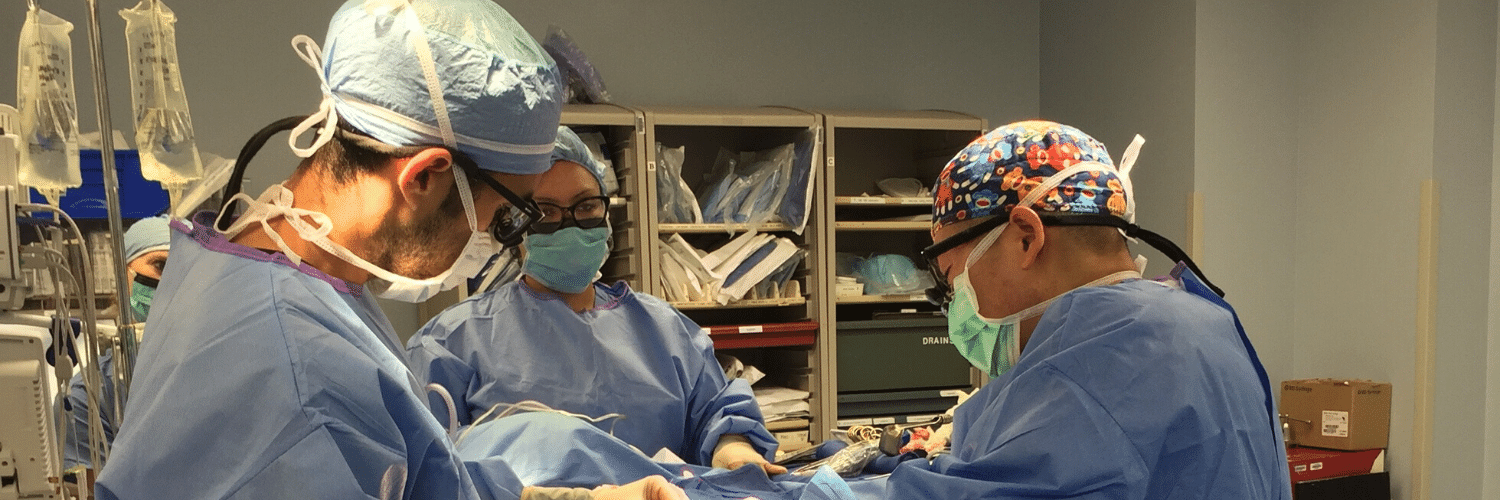What is chemo-brain?
Trouble concentrating? Forget things or have trouble remembering conversations? Have something to say, but just can’t get the words out of your mouth? Did someone say, chemo-brain?
Many of you who have gone through chemotherapy for breast cancer treatment can relate to this mental fogginess now known as ‘chemo-brain.’
Chemo-brain for years was thought to be a result of sleeplessness, anxiety, depression and fatigue. Researchers now say this mental fogginess may be caused by chemo treatment and can sometimes last long after treatment has ended.
“I knew what I wanted to say,” says breast cancer survivor Linda Thompson, “but I could not get the words to come out of my mouth.”
Doctors say that Thompsons symptoms are relatively common and can begin soon after chemotherapy treatment begins.
“I constantly felt like I was in a fog. I would forget things a lot and would even forget what day it was sometimes,” said Thompson. “Once I finished chemo it was like a light in my brain switched back on.”
Fortunately for most women, the effects on the brain happen quickly and don’t last long. They can however, be irritating especially if you are someone who is always on top of your game!
Some common symptoms to watch out for include:
- Forgetting things that you normally have no trouble recalling (memory lapses)
- Trouble concentrating
- Trouble multi-tasking
- Forgetting details like names and dates
- Trouble remembering words or being unable to complete sentences
- Difficulty with new learning
There are things you can do to help manage chemo-brain:
- Write things down – use sticky notes or keep a planner
- Be sure to get plenty of rest and eat healthy
- Exercise, even if only a few minutes a day
- Minimize distractions
- Practice stress-relief techniques
- Exercise your brain – try memory and thinking exercises
Remember, memory problems happen to everyone. Talk with other survivors to find out what has been helpful for them. If you’re someone who has been through the fog of chemo-brain, share your experiences below so that other women may benefit.
To talk with a PRMA advocate, call 800-692-5565
Author: Dr. Minas Chrysopoulo and Brandy (Korman) Haslam
Chemo-brain for years was thought to be a result of sleeplessness, anxiety, depression and fatigue. Researchers now say this mental fogginess may be caused by chemo treatment and can sometimes last long after treatment has ended.
Leave Comment
-

I can totally relate to this article. I came back to work as soon as I finished with my strong chemos and started w/ taxol and herceptin rounds of chemo. As a legal assistant for a Appellant Justice, I have to be on top of our docket, motions, orders-you name it. Some days are better than others but on my bad “chemo brain” days-my memory and concentration out of whack. Thank God for the caring and understanding group of Justices I work for. Now that I’ll be on Herceptin for the next couple of months, I really look forward to feeling better.
Delia
July 20,2020
-

” a change in brain function is evident on PET/CT brain imaging after treatment. Her team studied PET/CT scans of 128 patients before and after chemotherapy. Using technical software, they identified differences in brain metabolism before and after chemotherapy, and then distinguished patient history, information from neurological examinations, and chemotherapy treatments. They determined that there was an association between reductions in regional brain metabolism and symptoms of chemo brain. These are the energy areas known to be responsible for planning and prioritizing. PET/ CT imaging can reveal a diagnosis of chemo brain, enabling on- cologists to manage symptoms and care plans earlier and perhaps more effectively.1 The Journal of Clinical Oncology in 2012 published a study of 34 young premenopausal women with breast cancer conducted by S. Deprez and team. They determined using magnetic reso- nance diffusion tensor imaging before and after chemotherapy, the organization of cerebral white matter (WM) could be measured. After treatment, significant declines in attention tests, psychomotor speed, and memory were noted in the frontal, parietal, and occipital WM tracks, providing evidence of changes in cognitive functioning and cerebral WM integrity after chemotherapy.” Yes, Virginia, Chemo Brain is Real Joyce O. Hislop, doi:10.1016/j.clbc.2014.09.004 Clinical Breast Cancer Volume 15, Issue 2, April 2015, Pages 87–89
Anonymous
July 20,2020
Sign Up for Our Monthly Newsletter
Continue Reading

Hospital Stay After DIEP Flap Breast Reconstruction: What to Expect
Hospital Stay After DIEP Flap Breast Reconstruction: What to Expect December 09, 2020 Share on Facebook Twitter Linkedin Following DIEP flap breast reconstruction, patients are typically in the hospital for about 2-3 days. During that time, patients often wonder what they should expect. Here is what a typical hospital stay for PRMA patients entails… Flap […]

Breast Reconstruction Surgery and Your Period
Breast Reconstruction Surgery and Your Period December 02, 2020 Share on Facebook Twitter Linkedin During our pre-operative appointment with patients, a topic that occasionally arises is menstrual cycles. It is completely normal for women to experience changes with their periods throughout breast cancer treatments. These can be temporary or permanent. Periods can be unpredictable following […]

What Bras and Abdominal Girdles to Wear After Breast Reconstruction Surgery
What Bras and Abdominal Girdles to Wear After Breast Reconstruction Surgery November 17, 2020 Share on Facebook Twitter Linkedin When preparing for breast reconstruction surgery, many patients want to know what types of bras and abdominal girdles they should plan to wear after surgery. Although every surgeon has slightly different preferences, we have put together […]

My 5 DIEP Flap Realities | A Guest Blog From Julie
My 5 DIEP Flap Realities October 28, 2020 Share on Facebook Twitter Linkedin Hi everyone, my name is Julie from It’s a Bosom Thing. I am so happy to be here as a guest blogger and have this opportunity to share with you a few thoughts about life after DIEP Flap Surgery. I was diagnosed […]

PRMA’s BRA Day Virtual Event Recap
PRMA’s BRA Day Virtual Event Recap October 22, 2020 Share on Facebook Twitter Linkedin Yesterday we celebrated Breast Reconstruction Awareness day! Although we missed seeing everyone in person this year, we were still able to spread education and awareness on ALL reconstructive options through our virtual efforts. We were also able to share information on […]

Second Stage DIEP Flap Surgery
Second Stage DIEP Flap Surgery September 08, 2020 Share on Facebook Twitter Linkedin DIEP flap breast reconstruction is typically comprised of at least two stages for the best outcomes. The second stage of surgery is commonly referred to as the “revision” stage and is usually performed about three months after the initial reconstruction. The purpose […]

If ‘Flaps’ Are Such A Great Breast Reconstruction Option, Why Doesn’t Everyone Get Them?
If ‘Flaps’ Are Such A Great Breast Reconstruction Option, Why Doesn’t Everyone Get Them? September 08, 2020 Share on Facebook Twitter Linkedin Flap-based breast reconstruction procedures, like the DIEP flap, offer patients a safe, natural implant-alternative option to reconstruction after a mastectomy. Flap surgeries are permanent and are associated with fewer complications after radiation when […]

What is a Skin Island and How is it Used in Breast Reconstruction?
What is a Skin Island and How is it Used in Breast Reconstruction? September 08, 2020 Share on Facebook Twitter Linkedin What is a “skin island”? The term “skin island” is used to describe the remaining visible skin from a transplanted “flap” of tissue. In the setting of DIEP flap breast reconstruction, the skin island […]

Comparing APEX Flap and DIEP Flap Breast Reconstruction
Comparing APEX Flap and DIEP Flap Breast Reconstruction August 10, 2020 Share on Facebook Twitter Linkedin We have been receiving numerous inquiries about the “APEX flap” recently. Patients want to know what it is and how it differs from the DIEP flap. APEX is an acronym that stands for “Abdominal Perforator Exchange”. Many patients believe […]

Monitoring the Health of Your Flap During & After Surgery
Monitoring the Health of Your Flap During & After Surgery July 21, 2020 Share on Facebook Twitter Linkedin Autologous flap (or tissue) breast reconstruction procedures represent today’s most advanced options for rebuilding a breast(s) following mastectomy. The most commonly performed method of flap-based reconstruction at PRMA is the DIEP flap. During this procedure, surgeons transplant skin […]

4 years after chemo and still have chemo brain. It’s exhausting…. Even so, blessed to be sitting here writing this.
Doreen
July 20,2020